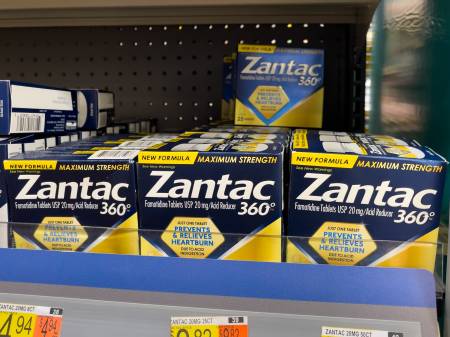Many people use bait traps to get rid of unwanted insects such as ants. The traps are common and can be used outside or indoors. This makes it easy for a dog to come across a trap and try to eat it! But what happens if a dog eats hydramethylnon?
Connect with a verified veterinarian in minutes. Licensed vets are available 24/7 to answer your questions. No need to worry about your furry family member.
Has your dog eaten hydramethylnon? Are you worried the hydramethylnon will make your dog sick? If so, then you’ve come to the right place. We understand it can be scary when your dog eats something he shouldn’t.
In this article, we’ll take a look at hydramethylnon and whether or not it can make your dog sick. Let’s get started!
What is Hydramethylnon?
Hydramethylnon is an insecticide that’s commonly used in ant bait traps. The chemical is a yellow-orange crystalline solid, which is odorless. Hydramethylnon is also used in bait gels and as a granular insecticide in some places, both indoors and outdoors.
Hydramethylnon is a type of pesticide that is categorized as a trifluoromethyl aminohydrazone or “metabolic inhibitor.” This type of pesticide works to attack the insect’s metabolic systems, which causes lethargy, decreased energy, and the inability to groom or feed. Symptoms may not show up until 24 to 72 hours after the toxin is eaten.
This insecticide is considered safe to use at home; however, what happens if a dog eats hydramethylnon?
Hydramethylnon & Dogs
The good news is that hydramethlynon is mildly toxic to dogs. The level of toxicity depends on how much the dog has eaten, as well as the dog’s weight and size. This means a small amount of the insecticide will cause only mild symptoms in most dogs. However, it is possible for a dog to eat too much of the poison.
If the poison was used in bait traps, then another danger could be the dog has also eaten the ant trap. It’s possible the trap could cause an intestinal blockage, which can lead to death if untreated.

Review symptoms, medications & behavior to keep your pets healthy with a Vet Online in just minutes.
Ask a Vet Live NowSymptoms of Hydramethylnon Ingestion in Dogs
You may notice these symptoms if your dog eats hydramethylnon:
- Diarrhea
- Vomiting
If your dog has these symptoms, then it may be a good idea to call the vet. Try to determine when your dog ate the poison and how much he ate. If the hydramethylnon was in ant traps, then see if your dog has also eaten the trap. This information will be helpful to the vet.
Depending on the seriousness of your dog’s symptoms and whether he ate the ant bait trap or not, the vet may ask you to monitor your dog. They may also provide instructions on what to do if the vomiting becomes worse or you’re worried about your dog.
Because hydramethylnon is not very toxic to dogs, your dog has a very high chance of making a complete recovery. Recovery could be longer for dogs who have eaten a lot of hydramethylnon for their weight and size.
Connect with a verified veterinarian in minutes. Licensed vets are available 24/7 to answer your questions. No need to worry about your furry family member.

Kyoko
Kyoko is from a family of 3 and moved to New York with her parents and siblings when she was 13. Kyoko is fond of spending a great amount of time with pets, specifically her beagle Luna and cat Missy. Her boyfriend often complains that she spends too much time giving attention to their animals. Kyoko has written dozens of articles concerning pets and is aiming at owning a pet shop one day!
Review symptoms, medications & behavior to keep your pets healthy with a Vet Online in just minutes.
Ask a Vet Live Now




